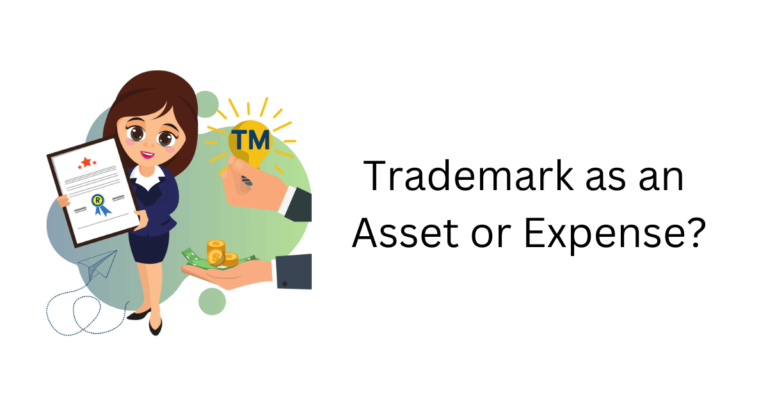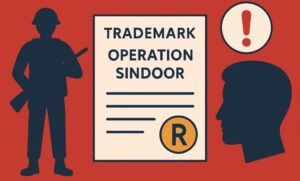Shakespeare famously said, ‘What’s in a name?’ However, this expression no longer applies because today the entire reputation, goodwill, and fame rest with the name, i.e., a trademark; therefore the question ‘is trademark is an intangible asset?’ has an affirmative response.
Table of Contents
ToggleTrademark as an Intangible Asset
A trademark is a name that a brand or business employs to allow consumers to recognize their brand and to differentiate their name from the rest in the market. When a brand or company achieves greater market share and consumer loyalty, the likelihood that other competitors may copy a similar name to deceive the public and profit monetarily increases.
To prevent others from using a similar or deceptive similar trademark, it is essential to have a registered trademark, which grants not only the exclusive right to use the mark but also the right to initiate legal action against those infringing on this right. In the same way, a trademark is more than simply a name; it also represents a company’s operations, services, reputation, and efforts.
A trademark carries huge weight and is valuable since it is associated with a firm’s reputation, and given the significance of trademarks; the question ‘is trademark is an intangible asset? has just one acceptable reply, and that is an emphatic “YES”; it cannot be denied that a trademark is an intangible asset for a business or a company.
Intangible Asset vs Tangible Asset
A tangible asset has a finite value and physical existence; it may be sold, acquired, or transferred for monetary compensation, but an intangible asset is a beneficial potential that does not have physical existence. These assets provide financial benefits to the company, but they are intangible, as opposed to tangible assets. Intangible assets include all forms of intellectual property, such as patents, copyrights, designs, and trademarks.
MSMEs and Indian Economy
MSME stands for Micro, Small, and Medium Enterprises. MSME were first time defined under the Micro, Small, and Medium Enterprises Development (MSMED) Act in 2006. The act was recently changed in 2020 with considerable revisions in the numbers pertaining to investment and turnover, which led to an increased number of medium-sized businesses.
- A microenterprise is an enterprise where investment doesn’t exceed Rs. 1 crore and where the turnover doesn’t exceed 5 crores.
- A small enterprise is an enterprise where investment is more than Rs. 10 crore and where the turnover doesn’t exceed 50 crores.
- A medium enterprise is an enterprise where the investment is not more than 50 crores and the turnover doesn’t exceed 250 crores.
The Indian government has promoted MSMEs with programs and initiatives such as ‘Atamnirbhar Bharat’ and ‘Make in India’, with the assistance of government-provided subsidies and cost-cutting measures, the MSME sector in India is growing and booming like no other industry.
Protection without registering trademark
As indicated previously, the MSME sector in India is expanding, and such expansion typically increases market rivalry. The growth and reputation of a MSME will entice others to use a similar or deceptively similar name to deceive the public or to profit from its goodwill. In such cases, without a registered trademark, the only recourse for the proprietors of a MSME is to go to court and employ the common law tort of passing off which requires money and time.
It is possible to shorten such a laborious procedure of enforcing a trademark by providing the infringer with a trademark registration certificate. The infringer is unlikely to oppose a valid trademark registration certificate in a court of law. Without having a registered trademark, it is not possible to directly sue competitors for trademark infringement, and the trademark is more likely to be copied. A registered trademark increases the business’s valuation and prevents others from registering a similar mark.
Trademark as a Necessity
When an MSME is incorporated, it is with the intention of seeking expansion and prosperity. For larger firms, there are numerous compliances that must be met, but for MSMEs, the government has taken a liberal stance and ignored much compliance in order to reduce the costs associated with the development of MSMEs. Each compliance must be weighed according to its importance.
When it comes to trademark registration, MSME owners have a tendency to disregard or delay the process, deeming it unnecessary or an unnecessary investment. However, a trademark is not an additional investment; rather, it is an intangible asset that will yield more profits in the future. By paying minor fees at the time of registration, a registered trademark saves a MSME from future expenditures on passing-off actions.
Trademark Registration for MSMEs
The 2017 amendment to the Trademark regulations has drastically decreased the registration fee. In general, the Trademark office charges proprietorship firms Rs.4500/- per class per application and non-proprietorship firms Rs.9000/- per class every application. However, enterprises with MSME registration are required to pay a registration fee of Rs.4500/- per class every application, which is half of what other companies must pay.
The registration procedure is relatively straightforward and few documents are required. The materials necessary for trademark registration by MSMEs are proof of identity and address of the applicant, proof of address of the organization, a partnership agreement or certificate of incorporation, an MSME registration certificate, and the trademark to be registered.
An Intangible Asset that is more valuable than any Tangible asset
A trademark is an intangible asset that, with the passage of time, has the potential to grow to be larger and more valuable than any other tangible asset. The only thing that enables average customers to identify a company with which they are familiar is a trademark, which serves as the identity of a brand. It is possible to buy, sell, or licence a trademark, just like any other tangible asset; yet, a trademark’s value extends far beyond its monetary worth; it is also responsible for an MSME’s goodwill, trust, and repute in the marketplace.
Conclusion
MSMEs are one of the most important contributors to the Indian economy. However, there is a dearth of awareness regarding the protection of intellectual property rights among the entrepreneurs. Considering the potential of infringement in future the MSMEs must look at the trademark registration as a necessary step and not as and added expense. A minimal fee for registering the trademark can save a huge amount on the legal proceedings that might come up in the future and it will also protect the goodwill of a MSME in the market.






